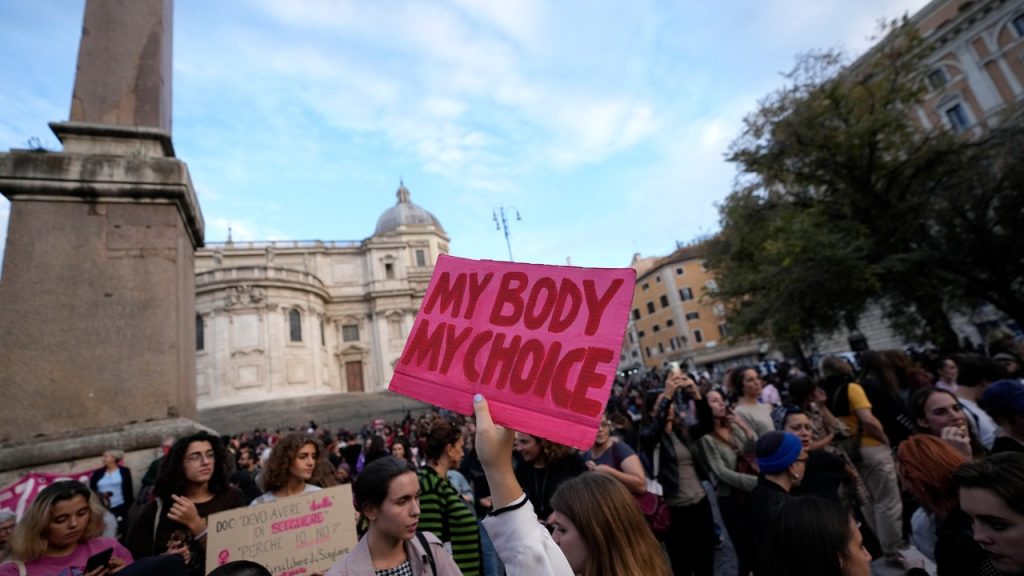Italian Premier Giorgia Meloni’s far-right-led government achieved a victory with the Senate approving a law allowing anti-abortion groups access to women considering ending their pregnancies. The move has reignited tensions around the issue of abortion in Italy, 46 years after it was legalized in the predominantly Catholic country. The approved legislation allows regions to permit groups with experience in supporting motherhood to have access to public support centers where women considering abortion seek counseling. The right-wing government argues that this amendment fulfills the original intent of the 1978 law legalizing abortion, known as Law 194, to prevent the procedure and support motherhood.
The left-wing opposition, on the other hand, sees this as a violation of abortion rights, with fears that such actions could follow Meloni’s election in 2022. Critics, including Democratic Party senator Cecilia D’Elia, argue that the right-wing opposes women’s reproductive autonomy and fears women’s choices regarding motherhood, sexuality, and abortion. Italy allows abortion on request in the first 12 weeks of pregnancy, with provisions for later procedures if a woman’s health or life is in danger. However, the implementation of these provisions is not always easy due to healthcare personnel being allowed to register as conscientious objectors and refuse to perform abortions, resulting in women needing to travel long distances to access the service.
Meloni, who campaigned on a platform of “God, fatherland, and family,” has maintained that she does not intend to overturn the 1978 law but rather implement it fully. Her government aims to address Italy’s declining birthrate, one of the lowest in the world, by encouraging women to have more children and tackle the country’s demographic challenges. There is a push for at least 500,000 births annually by 2033 to prevent the economy from collapsing under the weight of Italy’s aging population. The amendment allowing anti-abortion groups access to counseling centers is seen as a measure to prevent abortions by providing women with information and alternatives before making their decision.
Tensions over abortion in Italy come at a time when developments in other parts of Europe are moving in a different direction. France recently enshrined the guaranteed right to abortion in its constitution, while Malta and Poland have made strides in easing strict abortion laws. Italian leftists fear that the country may follow the U.S.’s footsteps, where access to abortion is being restricted following the Supreme Court’s repeal of landmark legislation. Elly Schlein, head of Italy’s Democratic Party, emphasized the need for establishing a mandatory percentage of doctors willing to perform abortions in public hospitals to ensure that abortion rights are not just on paper but actively accessible to women in need.
The debate over abortion in Italy underscores the ongoing struggle between the left and right on issues of reproductive rights and autonomy. While the government argues that the amendment supports the implementation of existing laws and provides women with information and choices, the opposition sees it as a direct attack on abortion rights and reproductive autonomy. The clash between pro-choice and pro-life groups reflects broader societal divisions in Italy and highlights the complexities of navigating legislation around sensitive issues such as abortion. As the country grapples with demographic challenges and social change, the future of abortion rights in Italy remains uncertain, with both sides locked in a heated battle over women’s reproductive health and choices.















